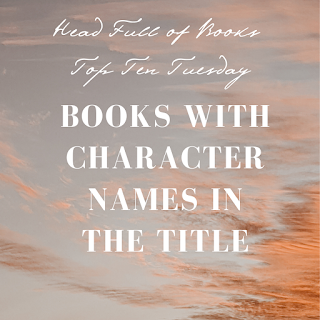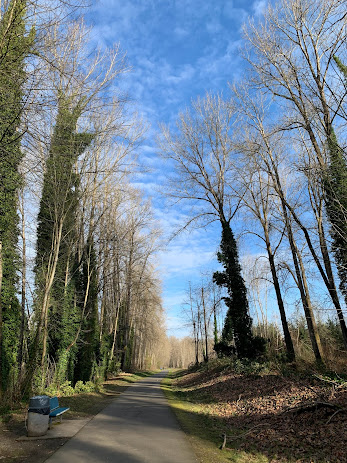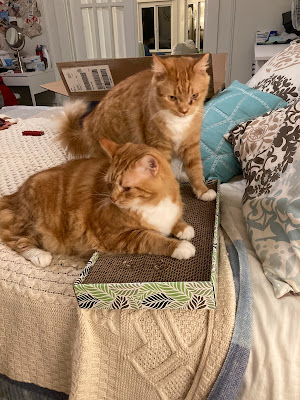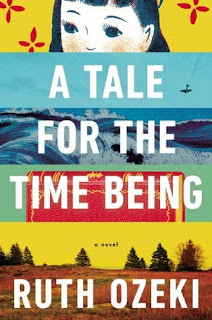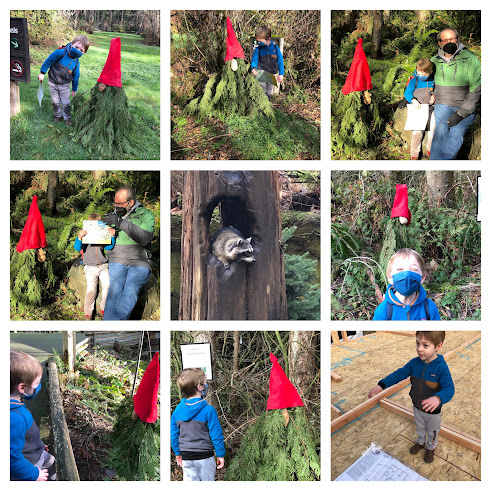Back in 2014 my favorite book was
The Goldfinch by Donna Tartt. It wasn't just my favorite book, it was everyone's favorite, even winning the coveted Pulitzer Prize for literature that year.
Oddly, considering how much I loved the book, I never reviewed it at the time of my reading. That omission has been a sore spot for me ever since then. So today, a little over seven years later, I will attempt to rectify that situation by writing a review of sorts. In an effort to refresh my memory I read through several reviews on-line and have decided to allow those reviews to give me an assist.
To begin with, every review I read about The Goldfinch (but I didn't need their help on this one) mentioned its length, 771 pages. Stephen King, reviewing the book for the NYT, began his review by quoting Jack Beatty and his famous critique of James A. Michener’s Chesapeake which is 865
pages long: “My best advice is don’t read it; my second best is don’t drop
it on your foot.” He goes on to remark about the commitment Tartt made in writing such a long book and at great personal risk to herself. What if no one liked her book after spending almost ten years writing it? Now there is an interesting perspective from one writer about another. I suppose King's comment comes from a place of knowing since he is also known for writing long books. Concerning this first concern, King assures the reader:
It’s my happy duty to tell you that in this case, all doubts and
suspicions can be laid aside. The Goldfinch is a rarity that comes
along perhaps half a dozen times per decade, a smartly written literary
novel that connects with the heart as well as the mind. I read it with
that mixture of terror and excitement I feel watching a pitcher carry a
no-hitter into the late innings. You keep waiting for the wheels to fall
off, but in the case of The Goldfinch, they never do.
I was well aware of the length of The Goldfinch but didn't need to worry about dropping it on my foot because I listened to the audiobook. The average audiobook is usually somewhere between 10-14 hours of listening time. The Goldfinch audiobook is 32.5 hours long. My commute at the time was about an hour round-trip so I clearly was at it for nearly a month. That is a commitment to one book when so many others are calling out for attention. (I just looked it up. If I was on a cross country trip I could get all the way from Washington State, where I live, to Indianapolis in 32 hours of driving time!) David Pittu, the voice actor who narrated The Goldfinch, won the Audie Award in 2014 for the best solo narration.
The arc of the tale is fourteen years, and the book begins near the end of the story. The narrator is Theo Decker and his narrative begins with this opening quote, "While I was still in Amsterdam, I dreamed of my mother for the first time in years" (1) Kamila Shamsie of The Guardian, begins her review talking about the length of the book but she makes a different point than Stephen King.
It is dangerous to write openings as compelling as Donna Tartt's. In The Goldfinch, Tartt has a
50‑page two-part opening. In the first section...Theo
Decker, is holed up in an Amsterdam hotel, looking at newspapers written
in Dutch, which he can't understand; he is searching for his name in
articles illustrated with pictures of police cars and crime scene tapes.
Before any of this is explained, the story moves back 14 years to the
day Theo's mother dies, when he is on the cusp of adolescence....This is, of course, where the danger comes in:
if, at the end of the kind of set piece to which the word "climactic"
should emphatically apply, you still have 700 pages to go, aren't you
setting your readers up for disappointment?
Shamsie answers her own question: "Astonishingly, the answer is no." In fact, all the professional reviewers said pretty much the same thing -- Don't be put off by the page length. It is worth every page.
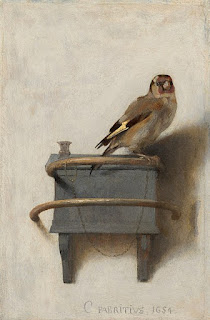 |
The Goldfinch, 1654
|
As you learned from above quote, Theo survived a terrorist bomb explosion at the Metropolitan Museum which killed his mother. The two had ducked into the museum to get out of the rain that day and while there his mother wanted to show Theo her favorite painting --"The Goldfinch" by a Dutch painter,
Carel Fabritius, who was an actual artist and was killed in a chemical explosion in the 1600s. This painting is one his few surviving works, and his best. Theo and his mother separate into different rooms just at the moment of impact. Theo eventually wakes to the mess all around him next to an old man. Theo narrates his own story, "
I was fading out myself -- ears ringing, inane buzz and a metallic taste in my mouth like the dentist's -- and I might have drifted back into unconsciousness and stayed there had he not shaken me, hard, so I awoke with a buck of panic" (48) This old man gives Theo a ring with strict instructions of what to do with it before he dies. After Theo's head clears and he can't find his mother, he picks up the painting from among the debris and carries it out of the museum and home, where he is sure he'll be reunited with his mother. He can never explain why he took it that day, but once he has it he doesn't want to part with it and clings to it as a tangible memory of his mother.
Abandoned by his father, Theo is taken in by a wealthy family of a school friend, the Barbours. Everyone understands that this arrangement is temporary but the relationship with the family becomes very important throughout Theo's formative years. Of course grief was ever present: “I had fallen off the map,” Theo says. “The disorientation of being in
the wrong apartment, with the wrong family, . . . groggy and
punch-drunk, weepy almost. . . . I kept thinking I’ve got to go home and then, for the millionth time, I can’t.” Eventually the father does show up and removes Theo to Las Vegas, where the father lives with his girl friend, Xandra, and is always hatching get-rich-quick schemes. Basically alone, Theo finds a friend, Boris, who is from Ukraine and is also neglected by his father. The two boys chum around together, often participating in petty thievery and the use of more and more serious drugs. Several years later the boys reunite, finding themselves inexplicably involved in the underbelly of the illegal art trade business. Eventually they end up in Amsterdam.
Ron Charles, writing for the Washington Post finds "While the world has been transformed over the past decade, one of the
most remarkable qualities of The Goldfinch is that it arrives singed
with 9/11 terror but redolent of a 19th-century novel. Indeed, Charles Dickens floats through these pages like Marley’s ghost" (WaPo). He mentions several of Dicken's books but keeps coming back to Great Expectations. You know Pip, the orphan, who has dreams of a different life for himself. There is even a Pippa in the book who could fulfill the role of Estella. She is the granddaughter of the man who gives Theo the ring. But to me it seems like more of the characters are drawn from Oliver, with Theo playing that role; Boris is the Artful Dodger; and his dad is Fagin. Stephen King says of James Hobart (Hobie), the kind furniture restorer who takes in Theo later in his life, "a Dickensian character if there ever was one."
Apparently everyone didn't love the book or thought they shouldn't love the book just like some of the gals in my book club who weren't crazy about it or at least didn't like parts of it. Douglas Perry, writing for the Oregonian, talks about these literary critics who failed to convince people that the book may not have been worthy of all its praise.
And these criticisms of the novel -- "fantastical," "cliché-ridden,"
"coincidence-laced" -- didn't rise up only after The Goldfinch jumped
to the top of the bestseller lists. The book-industry magazine Kirkus
Reviews, which publishes reviews before books hit shelves, wrote that
the "symbolic echoes Tartt employs are occasionally heavy-handed, and
it's a little too neat that Theo discovers the work of the sublime Dutch
master Carel Fabritius, (himself) killed in a powder blast, just before
the fateful event that will carry his mother away. Yet it all works." (Oregonian).
See? I told you. Everyone liked the book. Even when critics are criticizing The Goldfinch, they can't help but say how well the book works, or how exciting it is, or how it brings to mind the great classics -- all good stuff. Now the movie made from the book, is a a completely different story. It is not worth the time it takes to watch it.
What did you think of The Goldfinch? If you didn't/haven't read it, why not?
Book Beginnings on Friday is hosted by Rose City Reader. Share the opening quote from current book.
The Friday56 is hosted at Freda's Voice. Find a quote from page 56 to share.
Visit these two websites to participate. Click on links to read quotes from books other people are reading. It is a great way to make blog friends and to get suggestions for new reading material.
-Anne

